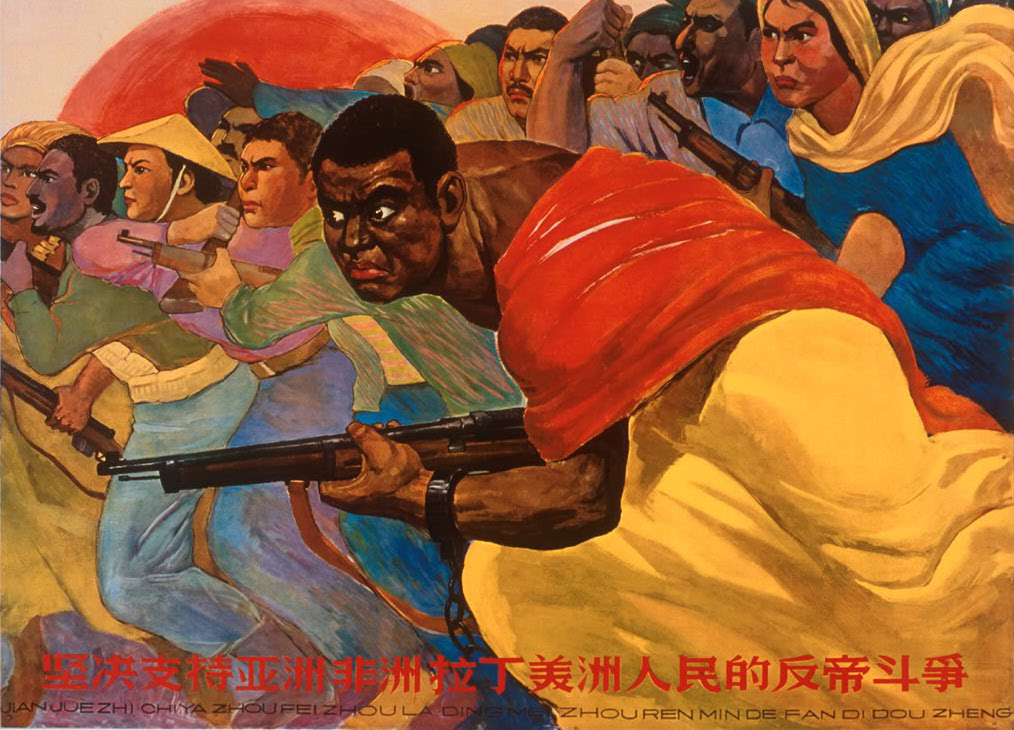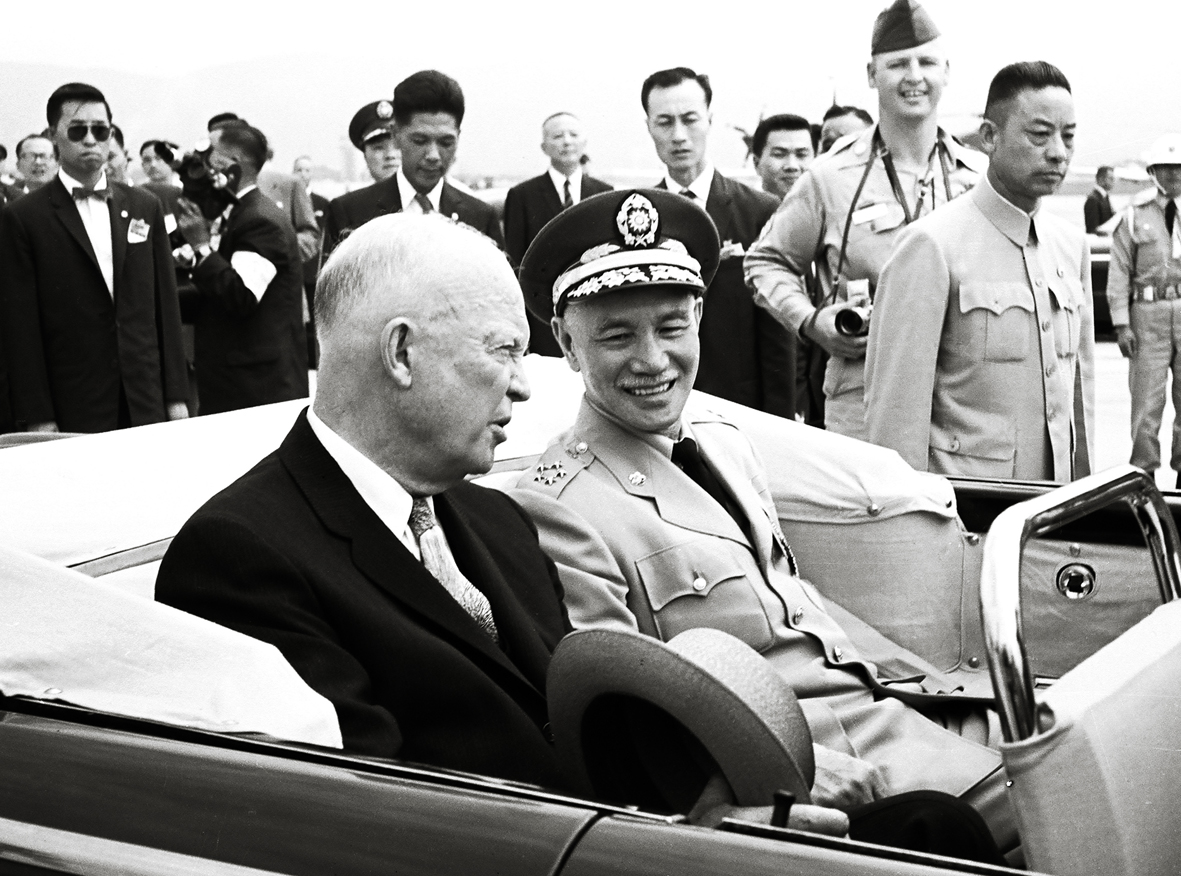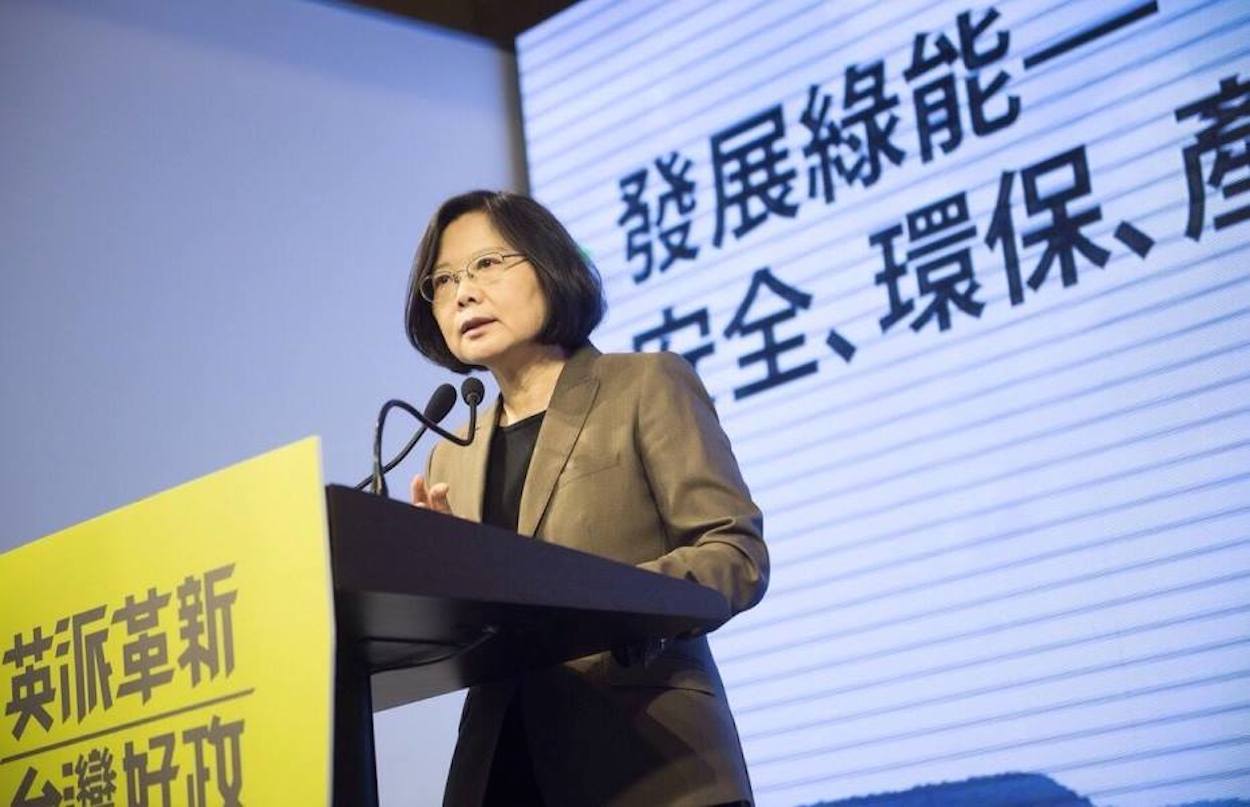by Brian Hioe
語言:
English
Photo Credit: 1943 Japanese Map
IF TAIWAN IS not, in fact, so small a country as it is sometimes suggested, we might next ask the question—is Taiwan a third world country? There exists complications in asking this question, in the sense that there were two different versions of “three worlds” theory asserted during the Cold War.
The first version of “three worlds” theory framed the “three worlds” as defined on the basis of political affiliation, with the first world consisting of the United States and affiliated western powers, the second world consisting of the “Communist” countries of the Soviet Union, China, and affiliated powers, and the third consisted of unaligned powers between the first two worlds. The first version of “three worlds” theory was usually advanced by political theorists belonging to the “First World” within this definition. The second version of “three worlds” theory, as most famously advanced by Mao Zedong, defined the three worlds on the basis of power. The first world consisted of superpowers, the second world of the countries which were medium powers, and the third world of oppressed nations.
 Solidarity with the revolutionary forces of the third world was a recurring theme of Maoism after the Sino-Soviet split, by which China was increasingly aligned with the third world rather than the Soviet Union
Solidarity with the revolutionary forces of the third world was a recurring theme of Maoism after the Sino-Soviet split, by which China was increasingly aligned with the third world rather than the Soviet Union
Even if individuals sometimes point to failures in infrastructure maintenance, retrogressive laws or failure to enforce rule of law, or rampant crony capitalism, as unbecoming of what should in theory be a first world country, most will agree that Taiwan enjoys what is primarily a first world standard of living. Taiwan is, after all, one of the “East Asian tigers,” one of the advanced capitalist nations of East Asia.
However, we might note that the contemporary use of “three worlds” theory to define the relative power of countries on the basis of development does not actually accord to the historical usages of “three worlds” theory. Though a country such as Taiwan may asserted to be “first world” or “third world”, this is thought of as a binary between advanced first world countries and backwards third world countries. The “second world” as intermediate term between the “first world” and “third world” is rarely ever used. The contemporary usage of “three worlds” theory would be closer to Mao Zedong’s definition of the three worlds on the basis of socioeconomic and politico-economic power. But following the dissolution of the Soviet Union, the “second world” in the first version of “three worlds” theory has largely ceased to exist apart from China, which continues to claim to be socialist in the present.
Yet probably the decline in usage of the term “second world” comes from confusion between the two versions of three worlds theory. If Mao’s version of “three worlds” theory is probably the more famous of the two versions, the two versions of “three worlds” are easily conflated, and the decline in the usage of the term “second world” an intermediate term between the advanced first world and backwards third world seems to correspond with the collapse of the “second world” as defined as the “Communist” world led by the Soviet Union. Thus, the commonsensical usage of “three worlds” theory in the present oftentimes actually only involves reference to “two worlds”: the “first world” and the “third world”.
If Taiwan is an advanced capitalist country and experiences what is largely, but not completely a first world standard of life, trying to categorize Taiwan along the binary of being either a first world or a third world country—with the hidden normative comparison to a western standard of living as the definition of a first world country—is probably a flawed approach. Rather, we might see Taiwan as somewhere along the spectrum of uneven development in non-western contexts.
 Dwight D. Eisenhower (Left) with Chiang Kai-Shek (Right)
Dwight D. Eisenhower (Left) with Chiang Kai-Shek (Right)
Yet if during the years of Chiang Kai-Shek and Chiang Ching-Kuo’s authoritarian rule, the ROC was propped up by the United States to counter China, Taiwan was a “first world country” in the first version of “three worlds” theory, in which “world” a country belonged to was on the basis of political alliance. Nevertheless, if in the present, Taiwan’s dilemma is that it is caught in some sense between America and China, perhaps Taiwan has actually become a “third world” country in this light?
Under the Ma administration we saw attempts at rapprochement with China, even if resisted by many in Taiwan. On the other side of the political spectrum, to oppose China’s claims on Taiwan many call for closer ties to the United States. Yet if Taiwan’s current dilemma is that it is caught between the dual factors of the “China factor” and “America factor,” is this not a state of being caught between two superpowers? This would seem to return to the Cold War situation of nations being caught between the “first world” of the US and “second world” of the Soviet Union, except in the present with the US and China.
If it is that the US does not pose an existential threat to Taiwan the way China does, given Chinese claims on Taiwan wholesale, the US still would use Taiwan as a geopolitical chess piece in efforts to counter China. Taiwan can appeal to the rational interest of the US and the US’s desire to counter Chinese power in the Asia-Pacific region, but this always runs the risk of Taiwan getting the short end of the stick through being used—and possibly discarded—by the US. What if the US just decided that the rational choice to maintain US interests in the Asia-Pacific is in fact to sell Taiwan out to China? Some already make the argument. China simply is too much larger than Taiwan and that much more important where American strategic considerations are concerned. So it would always be a risk that America decides Taiwan is simply not worth it.
Nevertheless, if it is that during the Cold War, there were attempts by smaller, third world countries to collectively resist the political and economic control of larger superpowers, most notably with the Non-Alignment Movement, this is what does not exist in the present. There are not similar efforts of smaller nations to align along the premises of South-South economic and political cooperation in order to counteract the political and economic influence of both America and China. Perhaps this is what Taiwan should seek instead of solely pursuing American aid to counteract China, which comes with its inherent risks, and banks entirely upon an unreliable savior.
 Tsai announcing her New Southwards Policy. Photo credit: Tsai Ing-Wen Facebook Page
Tsai announcing her New Southwards Policy. Photo credit: Tsai Ing-Wen Facebook Page
If under Tsai Ing-Wen’s administration, there will be the attempt to diversify Taiwanese trade away from China through building increased trade ties with Southeast Asia by way of the “New Southwards Policy”, this is to avoid Chinese attempts to politically influence Taiwan through economic stratagems. But perhaps this should also come with the attempt to pursue stronger political ties with such countries.
The New Southwards Policy actually runs the risk of damaging political ties with Southeast Asian countries if it just becomes a process of Taiwanese capitalists exploiting workers in Southeast Asian countries as cheap labor, or contributing to environmental damage through the factories they build. We already see cases in which Taiwanese exploitation of labor or mass environmental destruction leads to backlash against Taiwan from residents of these countries. And in such cases, Taiwan should ally itself with the peoples of countries on the basis of shared values, rather than allying itself with countries with questionable human rights records simply if they will support Taiwan—as Taiwanese diplomacy has pursued in the past in alliances with politically corrupt and authoritarian Central American countries.
However, perhaps the reconsideration of Taiwan as a “third world country” is the means of pursuing a way out from being caught forever between the “China factor” and the “America factor”. Instead of pursuing the aid of American superpower to save it, what would it mean for Taiwan to align itself with other oppressed countries against the control of superpowers? This may be what needs to be considered further.


 Solidarity with the revolutionary forces of the third world was a recurring theme of Maoism after the Sino-Soviet split, by which China was increasingly aligned with the third world rather than the Soviet Union
Solidarity with the revolutionary forces of the third world was a recurring theme of Maoism after the Sino-Soviet split, by which China was increasingly aligned with the third world rather than the Soviet Union Dwight D. Eisenhower (Left) with Chiang Kai-Shek (Right)
Dwight D. Eisenhower (Left) with Chiang Kai-Shek (Right) Tsai announcing her New Southwards Policy. Photo credit: Tsai Ing-Wen Facebook Page
Tsai announcing her New Southwards Policy. Photo credit: Tsai Ing-Wen Facebook Page